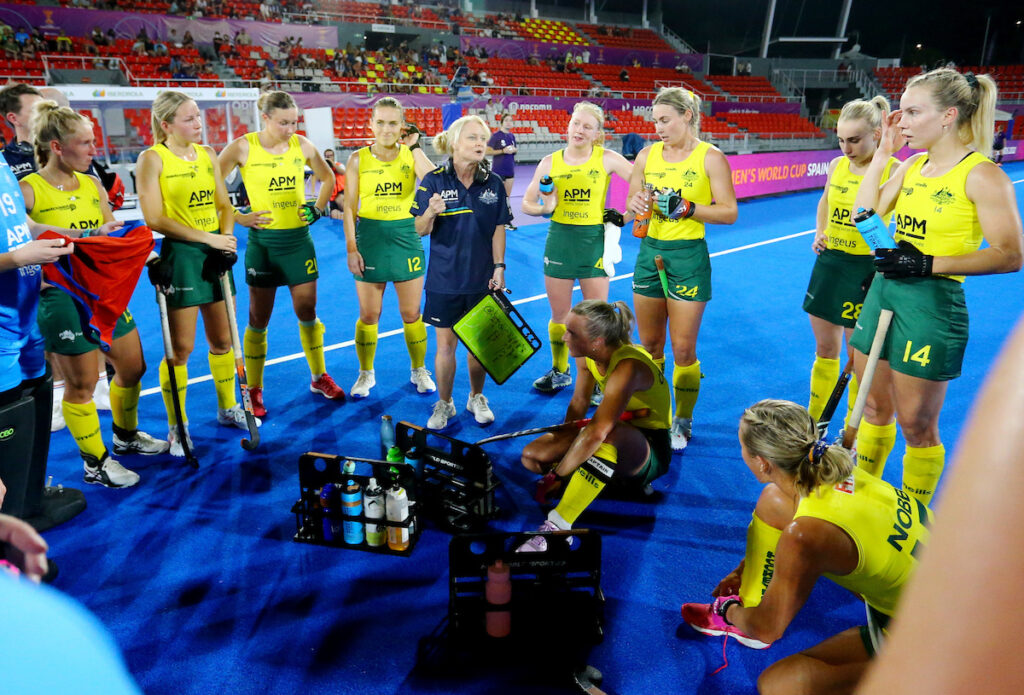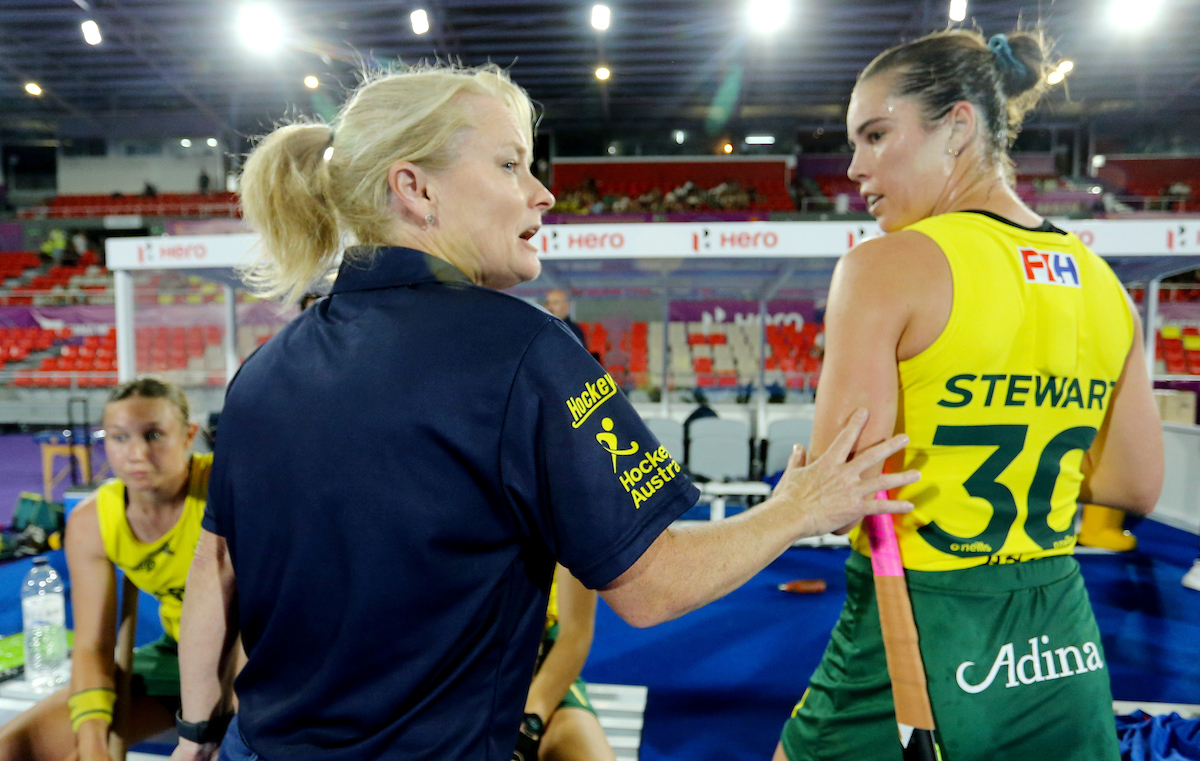Terrassa — “We all look up to Trinny,” says Australia co-captain Grace Stewart. “When she speaks, we are all ears and listening as she has been here before and done it.
“She is an inspiration and speaks with such passion and pride about it and that ignites that feeling inside of us. We hope to follow in her footsteps with her beside us.”
Stewart, a 25-year-old product of Gerringong, New South Wales, was speaking on Friday as her coach Katrina Powell sat beside her. The 50-year-old, alongside her sister Lisa, was a mainstay in Ric Charlesworth’s Hockeyroos (Olympic gold in 1996 and Sydney 2000). She was also, more importantly in terms of their quest here, part of the Australia team which won the 1998 World Cup in Utrecht, the Roos’ second and last success in the sport’s showpiece.
“One of the things we did in our era was to prepare really thoroughly,” said Powell.
“When you have back-to-back games at times and play against different continental styles, that challenge of not just the training before going away but preparing for each match, that’s what you go in with a level of confidence that you can stamp your way of play but also that you have what it takes to beat the opposition.”
Australia’s consistency has now seen them make eight semi-finals from the past nine World Cups. This one, though, has been forged against no competition since last summer’s Tokyo Olympics. Yet, they looked convincing in the group stages and are now face the mighty Dutch for a place in the final.
“You can’t underestimate the power of training,” adds Powell, when asked by The Hockey Paper to give an insight into how they have got so far with limited international matches.
“Opposition teams have had that opportunity of matches with the Pro League and the way we have tried to even that out is to train more together.
“We have that advantage in our system and the way the pathway works where we see developing players. We have a really strong Hockey One domestic league and the next group of athletes benefit from coming through that competition as well as the under-age structures throughout the country.”
There are 10 Hockeyroos competing in their first World Cup, players who have come in since 2018, while there are five players – including Claire Colwill and Hannah Cullum-Sanders – with six caps or less. Australia played four internationals before travelling to Europe and those newbies have, says Powell, adapted in quick time to tournament conditions. “To see them thrive at a World Cup is really compelling for the future.”
Powell added: “Our preparation has been about us all the way through without any international matches.
“Yes, the Dutch team is the top in the world and we have a lot of respect for them. The Dutch are coming from home to Spain whereas we have been on the road for four weeks away from home.
“The benefit of being in one place means we are used to the temperature and the stadium and how we go about things. We’ve got our supporters, family and friends and a bundle more watching from afar. We have that slight advantage at the moment but all the pressure is on the Dutch being the No 1 team in the world.”

The world, Euro and Olympic champions have had two days to prepare on the Terrassa surface. And there is a sense that the semi-final could be as tight as the quarter-final the Dutch experienced against Belgium.
Marloes Keetels, playing in her last international tournament, said: “Australia are quick and have fit players. We expect a nice game to watch as we both want to attack really fast.”
Coach Jamilon Mulders added: “We need to be on one page as coaches and players. We have a lot of respect for Australia and we all know what happened in 2018 [beat Hockeyroos in a semi-final shoot-out] and in 2014 it was also a close game.
“It’s about the details and what we saw so far after some respected retirements they have big depth in the quality of players.”




